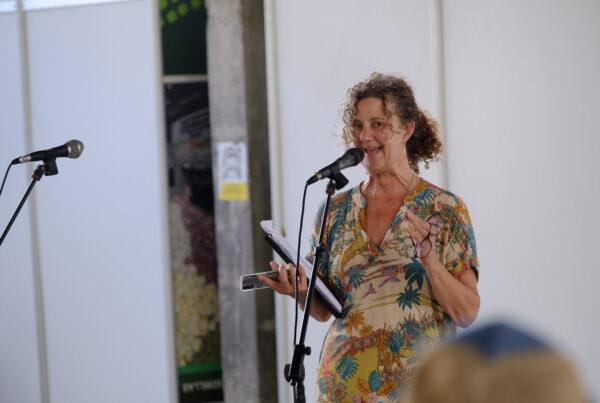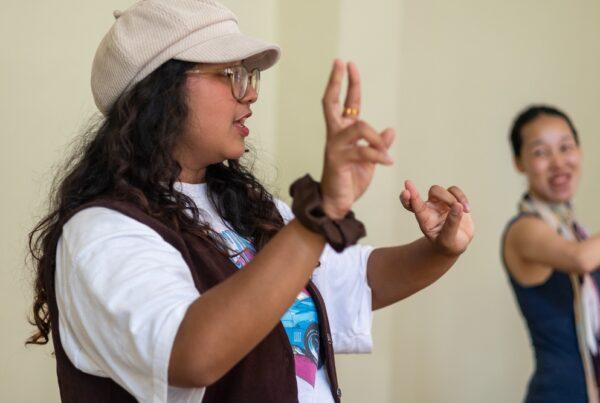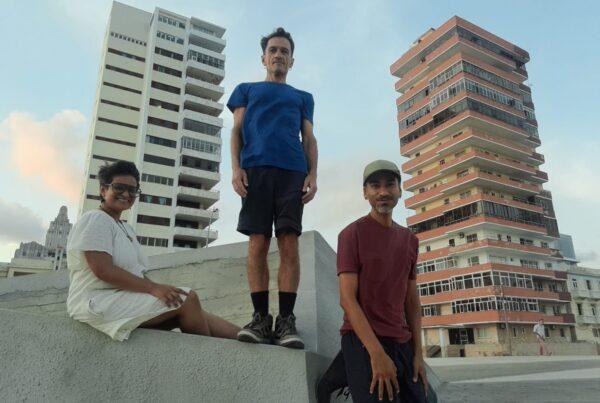At the beginning of a session aimed at exploring playwriting for Children and Young People focusing on children’s rights to access culture, especially those who are with disabilities and/or neurodiverse, Vicky Ireland, writer, director, producer, and qualified Drama Teacher for children and young people, member of the ASSITEJ EC, co-founder of IIAN (International Inclusive Arts Network) and board member of IIAN, greeted us with the words: Children need plays. So we gathered in the OPENS space in Novi Sad to exchange the experience.

First, the playwright from Serbia Milena Depolo read two scenes from her play ‘Who is Laurette?’ and talked about her creative journey. ‘Who is Laurette?’ is based on a picture book by Florence Cadier, and it was staged as a puppet performance by director Katarina Petrović in ‘Little Theatre Duško Radović’ 10 years ago. It was the first play in an institutional theatre in Serbia that dealt with the topic of a child with a disability – a girl with Down syndrome. “We were afraid of how the audience would react, but it turned out that teachers, parents and kids were amazed. We gave some of the kids a chance to feel seen and represented for the first time,” Milena explained. As Milena happily announced – the play will be put on stage once again this December in the same theatre.

Then we saw and heard highlights of a play called ‘Is-Siġra tat-Tin’ (The Fig Tree), written by Maltese playwright Simone Spiteri. During her creative project on this piece, she was facilitating the workshop with people with disabilities. “We often forget that disabled people do not want to talk only about their disability,” Simone explained. “Their interests are the same as ours. They want to talk and write about falling in love, work, how overprotected they feel,” she added. The Maltese playwright collected their stories during a workshop and wrote a play where she included text written by participants. In her opinion, having people with disabilities and people without them in the same workshop was crucial for everyone to feel included.
When asked to give younger playwrights advice for writing for/about/with disabled people, Milena and Simone advised:
Do not be afraid! The fear is not coming from them but from us. So you mustn’t fear.
– Simone Spiteri
Write a character, not a disability. And do not forget that they have abilities too.
– Milena Depolo
It was, however, noted during a discussion that there is no one with a (visible) disability. We were reminded about the principle: ‘Nothing About Us Without Us’. This is the principle of participation, which has been used by Disabled Peoples Organisations throughout the years as part of the global movement to achieve the full participation and equalisation of opportunities for, by and with persons with disabilities. Ginni Manning, as a moderator, and all speakers and contributors agreed that the discussion should have been done in the presence of disabled people.

Divna Stojanov is a dramaturg and playwright. She also writes theatre reviews.





